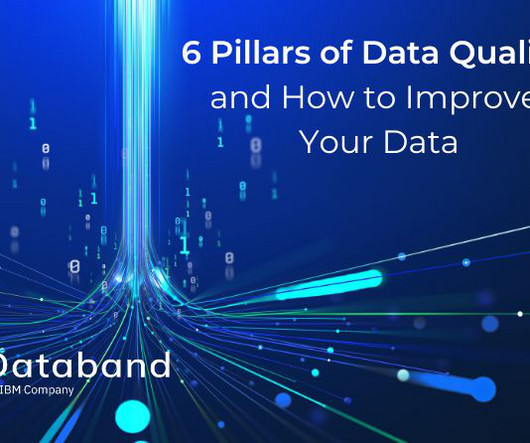6 Pillars of Data Quality and How to Improve Your Data
Databand.ai
MAY 30, 2023
Data quality refers to the degree of accuracy, consistency, completeness, reliability, and relevance of the data collected, stored, and used within an organization or a specific context. High-quality data is essential for making well-informed decisions, performing accurate analyses, and developing effective strategies.


















Let's personalize your content